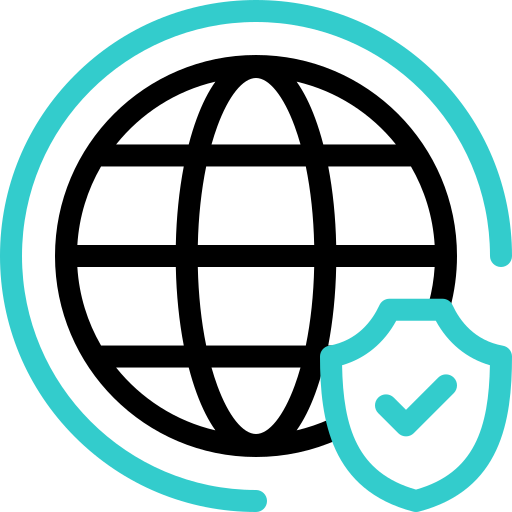VODNIKI
07-Feb-2023
Nastavitev brezplačnega in samodejnega SSL z Let's Encrypt in Nginx na Linuxu
 Ta vsebina je na voljo samo v angleščini.
Ta vsebina je na voljo samo v angleščini.1.Installing Certbot
1.1.On Debian-Based Systems
To install Certbot and its Nginx plugin on Debian-based systems like Ubuntu, execute the following commands:sudo apt install certbot python3-certbot-nginxThis setup prepares your system for SSL certificate management.1.2.On Red Hat-Based Systems
Start by enabling the EPEL repository to access Certbot packages:sudo yum install epel-releaseThen, proceed to install Certbot and the Nginx plugin:sudo yum install certbot python3-certbot-nginxThis process readies your Red Hat-based system for SSL certificate management.2.Acquiring SSL Certificates with Certbot
With Certbot installed, the next step is to use it to obtain SSL certificates from Let's Encrypt. This procedure includes Certbot making modifications to your Nginx configuration to secure your website's connections.2.1.Configuring Nginx and Obtaining Certificates
To secure your site with an SSL certificate, run:sudo certbot --nginxThis command initiates an interactive session that guides you through the certificate acquisition process. Certbot will automatically update your site's Nginx configuration file to use the newly obtained certificate, ensuring secure connections.During this process, Certbot saves the SSL certificate files to a standard location on your system. On Debian-based and Red Hat-based systems, these files are typically located in the /etc/letsencrypt/live/yourdomain.com/ directory. This directory will contain the certificate file (cert.pem), the private key (privkey.pem), and other related files necessary for SSL configuration.3.Automated Renewals
Let's Encrypt certificates are valid for 90 days, requiring renewal to maintain website security. Certbot automatically configures your system for these renewals. To verify the setup, perform a dry run with:sudo certbot renew --dry-runA successful test ensures that your system is configured to automatically renew certificates, keeping your site secure without needing manual intervention.4.Uvajanje z Interspace oblačnimi strežniki
Za tiste, ki želijo hitro začeti, Interspace oblačna platforma ponuja učinkovito rešitev. Lahko uvedete navidezni strežnik s prednameščenim operacijskim sistemom in aplikacijami v približno eni minuti. Interspace gre še dlje z omogočanjem predkonfiguracije vaših sistemov s prilagojenimi nastavitvami pred začetkom namestitve. To vključuje nastavitev podatkov za dostop, domen, vrat za povezave in drugih možnosti, specifičnih za aplikacije.Poleg hitrega uvajanja Interspace izstopa po svojem razmerju med ceno in zmogljivostjo. Vabimo vas, da raziščete pakete in cene na strani za Elastic Cloud VPS.Vsebina tega dokumenta je licencirana s strani Interspace pod MIT licenco
Povezana vsebina
Dokumentacija

Oblak

Komunikacije

Gostovanje

My Interspace
Tehnični članki

Vodniki

Učenje
Novice

Zadnje novice

Zadnji dogodki
Povezani produkti

Premium internetni dostop
Internetni dostop najvišjega razreda za profesionalne potrebe. Vrhunska točka-točka optična povezava, simetrična hitrost prenosa navzdol/navzgor, neomejen promet, SLA 99,9% in statični IP. Neposredne povezave do najboljših globalnih ponudnikov prve stopnje.
Naša omrežna arhitektura je skrbno zasnovana za zagotavljanje najvišje kakovosti povezav do katerekoli destinacije po svetu, s hitrostmi prenosa brez primere in večnivojsko redundanco.

Namenski strežniki
Namenski strežniki na vrhunski strojni opremi priznanih proizvajalcev strežnikov. Gostujejo v naših podatkovnih centrih, kar nam omogoča popoln nadzor pri zagotavljanju delovanja 24/7. Izbira primarnih podatkovnih centrov in podatkovnega centra za obnovo po nesreči, ki se nahaja na varni razdalji.
Možnosti nadzora napajanja (ponovni zagon, izklop/vklop) in brezplačen KVM-over-IP na voljo 24/7 z enim klikom, vključno s podporo za oddaljeni zagon/namestitev lastnih ISO datotek.

Elastični oblačni VPS
Elastic Cloud VPS je virtualni stroj, ki deluje na naprednih oblačnih in omrežnih tehnologijah ter ponuja superiorne prednosti pred tradicionalnim VPS gostovanjem po izjemnem razmerju med ceno in zmogljivostjo.
Namestitev OS in aplikacij v samo 1 minuti. Geo-redundantne varnostne kopije z enim klikom, posnetki in obnovitev po nesreči. Procesorji nove generacije AMD EPYC, ultra hitro NVMe shranjevanje, dedikovane povezave in brezplačno privatno omrežje.
 Slovenščina
Slovenščina Deutsch
Deutsch Македонски
Македонски Srpski
Srpski Shqip
Shqip Български
Български